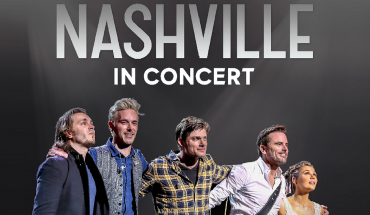A generation of Northern Irish singer-songwriters is coming of age if Gareth Dunlop‘s debut album, ‘No.79’, is anything to go by. An East Belfast man, he today stands alongside contemporaries Joshua Burnside, Duke Special and Pat Dam Smyth and walks in the footsteps of Foy Vance and Van Morrison, offering up a brimming cup of emotion and a type of sinewy cerebration best articulated through his sage’s beard, his quiet eyes old before their time as he squints through the smoke of the cigarette he’s just lit, visibly pleased after a day spent at a songwriting camp at Tileyard Studios in London’s King’s Cross.
“London’s got a lot of good things going on right now,” he says, “but there’s definitely a good heritage of songwriters and musicians from my neck of the woods.” Dunlop’s particular power as a performer can be an Irish thing, it would seem, something to do with an apartness and a unique pride in one’s culture. Perhaps.
“Us Northern Irish are a pretty cynical bunch and we can be hard on each other, and on ourselves. But with there not being a lot of [music] industry in the north of Ireland, there’s a lot of opportunity for people like myself to promote music, doing a lot of the leg work ourselves.”
In the beginning, Dunlop went to music college for four years where he studied performance theory and music technology. “It was a really good time for me, the best part of it being meeting other musicians who were in the same situation as me. We wanted to make music and wanted to find out if we could make a living out of it. I started out playing the electric guitar and wanted to sound like Jimmy Page or Clapton, but the singing came a bit later. Then I got into Dylan and Neil Young and that’s when my fascination for lyrics and poetry began.”
He’s a man who of late has been paid well for his songwriting skills, enjoying extended sojourns in Nashville, Tennessee for the past eight years where he has been writing for TV shows (Lucifer, Bones, House, Switched at Birth, NASHVILLE), as well as for other artists in between working as a staff writer for various publishing houses.
But it was the subtle, corrosive, corporate effect on his nascent talent that saw him step off the proverbial cliff edge and try it on his own. It was nerve wracking, he says, but essential, so the next natural step after putting down the electric and picking up the acoustic guitar was to write his own songs and see if they stood up by themselves.
“Up until No.79, I put out some EPs and the odd soft release here and there, but then I came up with a body of songs. I wanted to record with a pared back band and I decided to cut them all in one room [in the house of the album’s title] with the same players, and it took all in all about a week and a half. It was a lot of fun.”
Without the label machine doing its thing, he says, as it does for established acts, it comes down to word of mouth as far as building his reputation is concerned. “The starting point is playing shows and meeting people. But the record was borne out of a period of frustration and I felt that if I didn’t do something then I was going to dry up and blow away. In a way, just getting this record made was satisfaction enough, and anything after that is a bonus. There’s country on the record, definitely blues and folk too. It is what it is. I listen to a lot of music and get influenced by it all.”
Dunlop has the kind of voice that can still a room with its vulnerability, the meaning behind the words heartfelt, the emotion real. He says that people are intuitive when they listen to music now, and that it comes down to a live show, because “the one thing that you can’t digitise is an ass on a seat”.
“There’s no trickery to solo performances,” he says. “You can’t fake that. There’s nothing to hide behind when you’re baring the most honest things about yourself to a room full of people. It’s an intriguing process and it’s why I still go to gigs too.”
He has toured the UK and US, opening for a diverse group of artists including Van Morrison, The Stereophonics and James Morrison, and says that anyone writing songs, or writing anything for that matter, should start by questioning why they’re doing it and should play close attention to the creative side of their psyche. “Writing has always been a way for me to explain myself, to myself.” I suggest he possesses a rare ability to connect with audiences and not only western ones. “I write about matters of the heart, that are big feelings, and which I guess could connect with other cultures. Universal, human narratives translate.”
With there being, as he puts it, “an unease in the industry right now, with labels not knowing how to manoeuvre in the digital age”, Dunlop has his work cut out for him, the marketing of his music the necessary flipside to the creation of it.
With a young family to support, he faces a future with open arms and a full heart. “I want to stay creative and keep doing what I’m doing. I’ve got a young family, so keeping the lights on is important. So, yes, I want things to grow and get bigger. I want more people to hear my music and to connect with it and I want people to feel the way I feel about the songs. I’m constantly changing and finding out things about myself, and I love meeting people in this trade because they’re fascinating…” he says, pausing, squinting through a fresh cloud of tobacco smoke, “…and, often, they’re just as odd as I am.”
Jason Holmes
@JasonAHolmes





